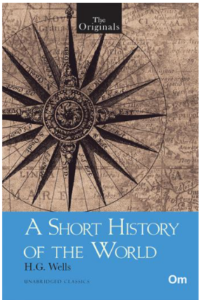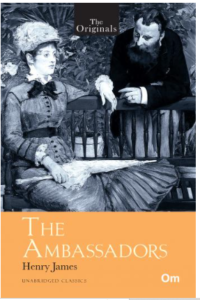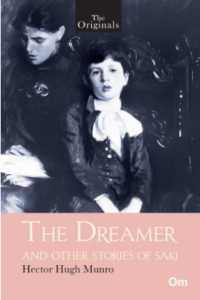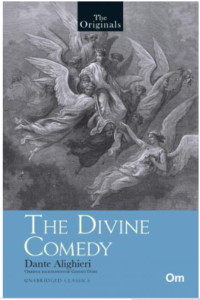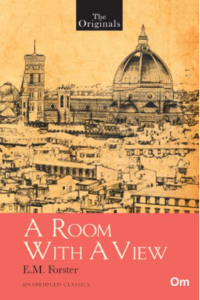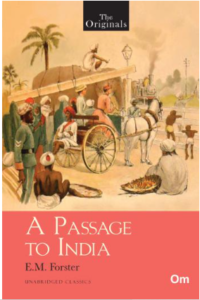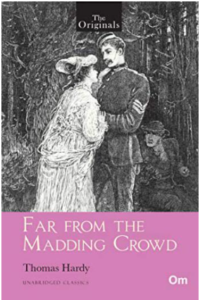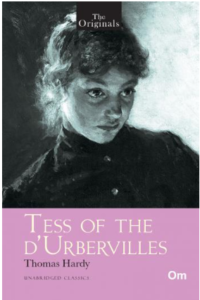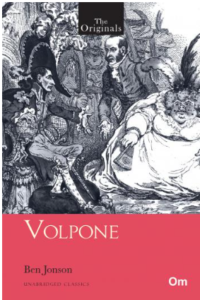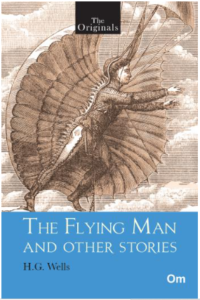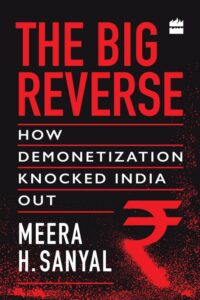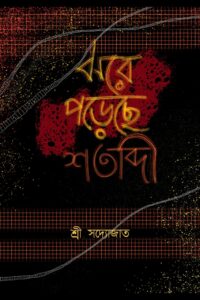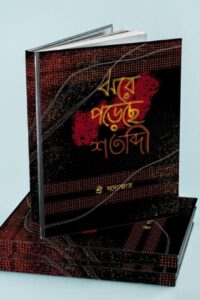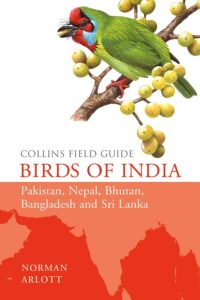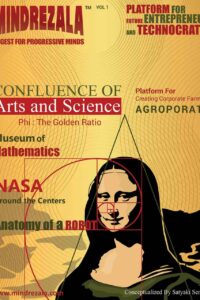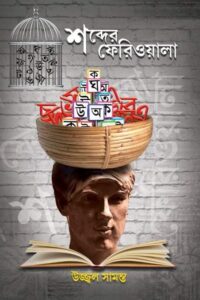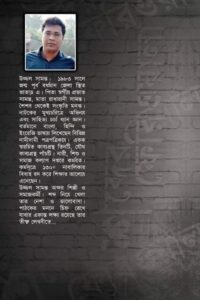16 results
- Brand: Om Books InternationalA Short History of The World ( Unabridged Classics): The Originals
₹295.00₹222.00About The Book
One of the founders of innovative science fiction novels, H.G. Wells was as taken up with the real world as his imaginary realm. Dissatisfied with the quality of history books at the end of World War I, the writer began penning his own history of the world. First published in 1922, A Short History of the World presents a groundbreaking study of the civilisation from the origins of the Earth—spanning the Neolithic Era, the rise of Judaism, the Golden Age of Athens, Christ’s life, the great discovery of America—to the consequences of World War I. Inspired by Wells’s The Outline of History (1919)—a work in three volumes, beginning with Prehistory and following the world’s significant events through World War I—this condensed work chronicles the physical, intellectual and spiritual evolution of the human race. Wells adopts a Darwinian approach and avoids presenting history within a politicised framework. Passionately told, A Short History of the World remains an evergreen classic.
About H.G. Wells
HERBERT GEORGE WELLS was born on 21 September 1866, in Bromley, England. In 1874, Wells, the son of domestic helpers-turned-shopkeepers, had an accident that left him bedridden for months. It was during this time that an avid reader was born. His father would bring him books from the local library and Wells would spend hours devouring the written word. Later, when his mother returned to working as a maidservant in a country house in Sussex, Wells found himself in the owner’s magnificent library, immersed in the works of stalwarts like Jonathan Swift, Charles Dickens, Sir Thomas More, Plato, Daniel Defoe and others. As a teenager, Wells worked as a draper’s assistant but eventually quit. Later, he won a scholarship to the Normal School of Science (later, the Royal College) where he learned about astronomy, biology, chemistry, and physics, among other subjects. All through, Wells nursed the secret desire to become a writer someday. In 1895, following the publication of The Time Machine, Wells became an overnight sensation. The story of an English scientist developing a time travel machine earned him the title of Father of Futurism. Wells’ successive books, often termed as ‘scientific romances’ included The Island of Doctor Moreau (1896), The Invisible Man (1897) and The War of the Worlds (1898) Wells’ works reflected the need for a society that flourished on the ideas and principles of global socialism. Published in 1920, The Outline of History is regarded as Wells’ best-selling work. A champion of social and political ideas, he also ran for Parliament as a Labour Party candidate between 1922 and 192 The visionary author, sociologist, journalist, and historian breathed his last on 13 August 1946, aged 79. - Brand: Om Books InternationalNostromo: A Tale of the Seaboard – Unabridged Classics (The Originals)
₹295.00₹222.00About The Book
“Government in general, any government anywhere, is a thing of exquisite comicality to a discerning mind.” Joseph Conrad’s Nostromo: A Tale of the Seaboard (1904) is set in Costaguana, a fictional South American republic with a troubled past. Both repression and revolution are written into the lives of the residents of Costaguana. When wealthy businessman Charles Gould offers his support to a ruthless Latin American dictator in the hope of advancing his own business interests, his actions trigger more chaos in Costaguana. Gould turns to the incorruptible Nostromo for help. Though Nostromo heroically saves his city from the deadly advances of revolution, a dark secret threatens to destroy his life and reputation forever. Seeped in drama and spectacle, vivid in description, and incisive in terms of social and political commentary, Nostromo is one of Conrad’s most ambitious novels. The winner of both popular and critical acclaim, this novel remains a topical read because of Conrad’s foresight, political acumen, and his gift for crafting a moving, human story set against the churnings of history.
About Joseph Conrad.
Polish-British writer Joseph Conrad was born in a Russian-ruled province of Poland (in present-day Ukraine) in 1857. Both his parents were politically active in the Polish independence movement. As a result, the family was exiled to northern Russia in 1863. Conrad was orphaned at 11 and sent to live with his relatives. He joined the French merchant marines at 16. At 21, he joined a British ship and went on to work for the British merchant marines for 10 years. During this stint, he became a naturalized British citizen and travelled to Asia, Africa, Australia, and India. His voyage to the Congo (then a Belgian colony) in 1890 sparked his powerful novella, Heart of Darkness (1899). Conrad’s well-known novels include Nostromo (1904), The Secret Agent (1907), Under Western Eyes (1911), and Victory (1915). He also collaborated on two novels with his friend and fellow writer Ford Madox Ford titled The Inheritors (1901) and Romance (1903). Conrad retired from the marines due to ill health and died of a heart attack in England in 1924.
- Brand: Om Books InternationalMiddlemarch: A Study of Provincial Life – Unabridged Classics (The Originals)
₹395.00₹297.00About The Book
“You are a good young man,” she said. “But I do not like husbands. I will never have another.” British novelist George Eliot (pseudonym of Mary Ann Evans) painted a rich and vivid portrait of a small 19th-century town in her acclaimed novel, Middlemarch. Published in eight parts in 1871–72 and also published in four volumes in 1872, Eliot’s magnum opus delves into the lives of people belonging to various classes in Middlemarch—the landed gentry, clergy, farmers, labourers, and professionals. The narrative revolves around two central characters—Dorothea Brooke, an intelligent woman who marries the wrong man, and Tertius Lydgate, an ambitious, progressive doctor who also makes a costly mistake when choosing a mate. Eliot refused to bow to the dictates of tradition and ended her novel on a happy note as women writers of the time were expected to do. Rich in insight and layered with moral ambiguity, Middlemarch boldly lays bare the reality of matrimony.This quintessentially modern novel was hailed by pioneering modernist author Virginia Woolf as “one of the few English novels written for grown-up people.”
About George Eliot.
George Eliot, pseudonym of Mary Ann Evans, (1819–1880) was a British author whose novels are rich in psychological analysis, a defining feature of modern fiction. Starting out as a critic and translator, she was influenced by the ideas of Ludwig Feuerbach and Auguste Comte. Her remarkable body of fiction was shaped by her vast intellectual interests and her unparalleled grasp of the novelistic form. She explored a wide variety of themes in her novels, gifting her readers with an acutely observed portrayal of English rural and provincial life. This trailblazing Victorian writer’s major works include Adam Bede (1859), The Mill on the Floss (1860), Silas Marner (1861), Romola (1862–63), Middlemarch (1871–72) and Daniel Deronda (1876).
- Brand: Om Books InternationalThe Ambassadors ( Unabridged Classics) : The Originals
₹195.00₹147.00About The Book
Live all you can; it’s a mistake not to.” worried that her son, Chad, may have succumbed to the charms of the alluring city of Paris, and the mysterious br>Madam de VI on NET, Mrs new some sends her ‘ambassador’ Lambert stretched to Paris to bring him back. However, strether himself falls under the spell of Paris, and finds Chad a rather refined man. Over time, Mrs new some is convinced that she should send another ‘ambassador’ to confront the two men. A compelling story about stretches, his journey and its unexpected conclusion, the ambassadors is a novel teeming with sensitive characters, lost youth, and people caught in the frenzied pace of life. Woven around James’ favourite br>Theme – The clash of American innocence and the European experience – The ambassadors, considered Henry James’ finest work, is a searing portrait of a man’s awakening. Published in 1903, It still remains a timeless classic.
About Henry James
HENRY JAMES, born on 15 April 1843, was an American writer An avid reader since childhood, James was deeply interested in understanding different cultures. Till the age of 12, he was educated by private tutors. Thereafter, he studied at different schools in Paris, Geneva, and Bonn. In 1862, he sought admission in Harvard Law School. However, he soon withdrew to focus on his writing. Over nearly 51 years, he wrote 20 novels, 112 short stories, and 12 plays. Amongst his notable works are The American (1877), The Tragic Muse (1890), The Awkward Age (1899), and The Golden Bowl (1904). He also wrote several reviews, stories, and articles for The Atlantic Monthly and The North American Review. His works have been translated into several languages. Known as the torch bearer of the 20th-century “stream-of- consciousness” movement, James passed away in London on 28 February 1916.
- Brand: Om Books InternationalThe Skylight Room and other Stories ( Unabridged Classics) : The Originals
₹250.00₹188.00About The Book
American author William Sydney Porter, better known by his pen name br>o Henry (11 September 1862-5 June 1910), was a prolific short-story writer. Adept at handling comic and tragic themes, he used to great effect, both sentiment and surprise endings in his stories. Many of these trace the lives of ordinary new Yorkers who yearn for romance, passion and adventure, brilliantly capturing in the process The rhythms of American life at a time when slavery and the Indian Wars were a raw and recent memory. In his first book, he brought to life a colourful cast of characters whose stories unravel against a Honduran setting. This collection, featuring some of br>o br>Henry’s best stories—‘the gift of the Magi’, ‘the last leaf’, ‘the Skylight room’, ‘a municipal report’ and ‘the making of a new Yorker’ – showcases his mastery over the medium and the sheer range of his themes.
About O. Henry
WILLIAM SYDNEY PORTER (1862-1910), pseudonymously famous as O. HENRY, was one of the finest American short story writers. His writings were famously marked by ironic humour and surprise endings. Some of his major works are The Four Million (1906), The Trimmed Lamp (1907), Heart of the West (1907) and Whirligigs (1910). Porter began his writing career with the setting up of The Rolling Stone in 1894, a humorous weekly which did not do well. This was followed by a short stint at The Houston Post as a reporter, columnist and cartoonist. However, Porter was imprisoned for embezzlement of bank funds and served a sentence, eventually getting early release for good behaviour. While in jail, he started writing short stories under the pseudonym O. Henry to support his daughter, and became renowned. O. Henry died on June 5, 1910, aged 47.
- Brand: Om Books InternationalThe Dreamer and Other Stories of Saki ( Unabridged Classics) : The Originals
₹175.00₹132.00About The Book
Hector Hugh Munro (December 18, 1870–november 14, 1916) was a British author who wrote under the pen name, Saki. Hailed as a master of the short story form, Saki is often compared to Dorothy Parker, Anton Chekhov, and br>o Henry. His beautifully crafted stories, laced with generous doses of sardonic humour, irony, and elements of the macabre, expertly lampoon the hypocrisies of conventional society. Through his stories, he expressed his sympathy with the oppressed, particularly children who are forced to suffer the cruel hegemony of the adult world. With cutting wit, remarkable skill, and clever use of animal imagery, he mocked the popular customs and foibles of Edwardian society and exposed its real face in stories such as ‘gabriel-earnest’, ‘Laura’, and ‘toberymoy’. many of the characters he created–outspoken Laura, outrageous Reginald, ambiguous clovis–remain perennial favourites with readers. Surprising, witty, and entertaining, they Spring to life on the pages. This collection features some of saki’s finest stories including the ‘unrest cure’, ‘the interlopers’, ‘sredni vashtar’, ‘toberymoy’, an ‘the open window’.
About Hector Hugh Munro
British author HECTOR HUGH MUNRO (December 18, 1870- November 14, 1916) wrote under the pen name, Saki. Munro was born in Akyab, Myanmar (formerly known as Burma) in 1870 His mother, Mary, died when he was only two years old. After her death, the three Munro children were sent back to Britain to live with their strict, puritanical grandmother and aunts. At 23, Munro joined the military police in Myanmar. After suffering from bouts of malaria, he resigned from his post and went back to Britain in 1895, In 1896,, he joined the Westminster Gazette as a political sketch writer. His sketches were later published as The Westminster Alice and The Not So Stories. Munro’s historical work, The Rise of the Russian Empire, was published in 1900. He became the Balkan correspondent of The Morning Post in 1902. His story, ‘Reginald’, appeared in book form in 1904, Reginald in Russia in 1910, The Chronicles of Clovis in 1911, and Beasts and Super-Beasts in 1914. The rest of his stories were published posthumously. Munro also wrote two novels, The Unbearable Bassington (1912) and When William Came (1913) as well as three short plays. When World War I broke out in 1914, Munro enlisted in the ranks. He was killed in France on November 13, 1916, by German sniper fire during the Battle of Ancre.
- Brand: Om Books InternationalTao Te Ching ( Unabridged Classics) : The Originals
₹195.00₹147.00About The Book
The sage does not accumulate (for himself). the more that he expends for others, The more does he possess of his own; The more that he gives to others, The more does he have himself. Written over 2000 years ago, Tao Te Ching, that roughly translates to “the way of integrity,” remains one of the most translated philosophical books in the world. A series of aphorisms and parables, this central text of Taoism, believed to have been written by its founder, Lao Tzu, invites the reader to follow the Tao or the way, through sound political advice, and the practice of peace, humility, modesty, morality, generosity, virtue, self-knowledge, self-restraint, and balance in order to exist in harmony with the universe. To date, Tao Te Ching remains a relevant guide in many spheres of life for its practical, simple and grassroots wisdom.
About Lao Tzu
Lao Tzu, meaning “Old Master,” was a Chinese philosopher, who was believed to be an older contemporary of Confucius, and the founder of Taoism, one of the three great religious and philosophical traditions of China. A record keeper in the court of Zhou in the 6th century b.c., Lao Tzu has been credited as the author of Tao Te Ching, though the identity of this seminal Taoist treatise’s author(s) or compiler(s) is still widely debated. In the tradition of most ancient Chinese philosophers, Lao Tzu often takes recourse to paradox, analogy, repetition, symmetry, rhyme, rhythm, and appropriation of ancient sayings, to explain his ideas. James Legge (1815-1897) was a Scottish sinologist, scholar and missionary, who translated Classical Chinese texts into English. He served as a representative of the London Missionary Society in Malacca and Hong Kong (1840-1873) and was the first Professor of Chinese at Oxford University (1876-1897). In association with Max Müller, he prepared the monumental Sacred Books of the East series, published in 50 volumes between 1879 and 1891.
- Brand: Om Books InternationalTales From The Arabian Nights ( Unabridged Classics) : The Originals
₹295.00₹222.00About The Book
“A loss that can be repaired by money is not of such very great importance.” when king Shahryar discovers that his wife has been unfaithful to him, he kills her and resolves to marry a virgin every day and behead her the next morning. Scheherazade, his next bride, uses her wits to stay alive. She starts to tell the king an intriguing story each evening, but withholds the ending to sustain his interest in the next evening tale. A thousand and one nights later, the king spares the storyteller life forever. Tales from the Arabian Nights presents a fine selection of the stories that saved Scheherazade’s life. It includes some of the world’s best-known adventure tales such as the exploits of Sindbad the sailor, alaeddin, or the wonderful lamp, and Ali Baba and the forty thieves. The collection is replete with intrigue, satire, murder, mystery, romance, magic, horror, and even touches of science fiction. The cast of characters includes djinns, monsters, spirits, sorcerers, kings, queens, and commoners. Innovative in form and content, tales from the Arabian Nights features tragedies, comedies, erotica, historical events and more.
- Brand: Om Books InternationalThe Divine Comedy( Unabridged Classics): The Originals
₹295.00₹222.00About The Book
Br>o human race, born to fly upward, Wherefore at a little wind Dost thou so fall? The divine comedy, (original name LA Com media), is an epic poem written by celebrated Italian poet Dante Alighieri’s divided into three main sections—inferno, purgatorio, and paradiso—the basic structural br>Unit of the divine comedy is the Canto. Each Canto consists of about 136–151 lines. The poems rhyme Scheme is the terza rima (aba, bcb, CDC, etc.). So, the divine number of three is present throughout the divine comedy. The poem traces the journey of a man (thought to be Dante himself) who visits the souls in Inferno, purgatorio, and paradiso. He has two guides by his side— Virgil who accompanies him to Inferno and purgatorio, and Beatrice who introduces him to paradiso. Dante uses this fictional journey as an effective device to grapple with the larger questions of existence—morality, sin, redemption, the fall of mankind well as to wrestle with his personal demons and Italy’s political dilemmas.
About Dante Alighieri
Dante alighieri (1265–1321) was a renowned Italian poet, prose writer, literary theorist, philosopher, and political thinker. His epic poem, La Divina Commedia (The Divine Comedy), is one of the most celebrated works of world literature. His other notable works include La Vita Nouva, The Banquet, and Literature in the Vernacular. Dante started writing poetry at a very young age and dedicated most of his poems to Beatrice, a girl he met when he was nine years old. Facing execution in his hometown of Florence due to his political activities, he moved to Ravenna, Italy, where he remained till his death in 1321.
- Brand: Om Books InternationalA Room with a View – Unabridged English Classics (The Originals)
₹195.00₹147.00About The Book
It makes a difference doesn’t it, whether we fully fence ourselves in, or whether we are fenced out by the barriers of others? British writer E.M. Forster’s novel, A Room with a View (1908) revolves around Lucy Honeychurch, a young woman who lives in socially conservative Edwardian England. The story, set in Italy and England, is both a romance and a critique of English society in the early 1900s, when upper-middle class English women were starting to dream of leading more independent lives. Lucy’s journey to Italy with her prim and proper cousin, Charlotte Bartlett, is packed with adventure, romance, encounters with people from other cultures, and epiphanies. She falls in love with George Emerson during her stay in Italy, but back home in England, her fiancée is eagerly waiting for her return. Freedom and a whole range of possibilities beckon as Lucy tries to resolve the dilemma and build a new life for herself.
About E.M. Forster
Edward Morgan ForstEr (1879–1970), British novelist, essayist, short story writer and critic, was born at Marylebone, London. His architect father died when Forster was very young and he was brought up by his mother. Forster’s celebrated works include the novels A Room with a View (1908), Howards End (1910), A Passage to India (1924), and Maurice (1971) as well as a large corpus of criticism. Forster broke new ground by departing from the elaborate, flowery style of his predecessors and adopted a freer, more colloquial style in his books. His novels were seeped in social commentary, which was based on his in-depth observations of middle-class lives. He also had a deep-rooted interest in Mediterranean “paganism,” which called for humans to maintain their connection with the natural world and live a life attuned to the earth’s rhythms.
- Brand: Om Books InternationalA Passage to India ( Unabridged Classics): The originals
₹195.00₹147.00About The Book
Life never gives us what we want at the moment that we consider appropriate. British author e.M. Forster novel, a passage to India (1924) is based on the authors impressions of India. He started writing the novel soon after his first visit to the country. The story, set in the 1920s, plays out against the backdrop of the Indian Independence movement. The title of the novel is inspired by American icon Walt Whitman 1870 poem, a passage to India. The novel revolves around four main Characters— Dr. Aziz, his British friend Mr. Cyril Fielding, Mrs. Moore, and Miss adela quest during a day trip to marabar caves, adela mistakenly believes Dr. Aziz is trying to assault her. Dr. Aziz’s ordeal after being falsely accused, the run-up to his trial, and its consequences highlight the underlying tensions between Indians and the British rulers of India of the time. Though foster managed to shine a light on race relations and power imbalances in India during the British Raj, he did not directly condemn colonialism and imperialism in a passage to India.
About E.M. Forster
Edward Morgan ForstEr (1879–1970), British novelist, essayist, short story writer and critic, was born at Marylebone, London. His architect father died when Forster was very young and he was brought up by his mother. Forster’s celebrated works include the novels A Room with a View (1908), Howards End (1910), A Passage to India (1924), and Maurice (1971) as well as a large corpus of criticism. Forster broke new ground by departing from the elaborate, flowery style of his predecessors and adopted a freer, more colloquial style in his books. His novels were seeped in social commentary, which was based on his in-depth observations of middle-class lives. He also had a deep-rooted interest in Mediterranean “paganism,” which called for humans to maintain their connection with the natural world and live a life attuned to the earth’s rhythms.
- Brand: Om Books InternationalFar from the Madding Crowd
₹250.00₹188.00About The Book
“Government in general, any government anywhere, is a thing of exquisite comicality to a discerning mind.” Joseph Conrad’s Nostromo: A Tale of the Seaboard (1904) is set in Costaguana, a fictional South American republic with a troubled past. Both repression and revolution are written into the lives of the residents of Costaguana. When wealthy businessman Charles Gould offers his support to a ruthless Latin American dictator in the hope of advancing his own business interests, his actions trigger more chaos in Costaguana. Gould turns to the incorruptible Nostromo for help. Though Nostromo heroically saves his city from the deadly advances of revolution, a dark secret threatens to destroy his life and reputation forever. Seeped in drama and spectacle, vivid in description, and incisive in terms of social and political commentary, Nostromo is one of Conrad’s most ambitious novels. The winner of both popular and critical acclaim, this novel remains a topical read because of Conrad’s foresight, political acumen, and his gift for crafting a moving, human story set against the churnings of history.
About Thomas Hardy
Thomas Hardy was an English poet and novelist. He was bon in the village of Upper Bockhampton in Dorset, England in 1840, His father was a stone mason as well as a violinist. His mother was an avid reader and thanks to his parents, Hardy was introduced to architecture and music and grew to love them. These interests were evident in his novels as well as the lifestyles of the country folk. So was his passion for all types of literature. Hardy taught himself Latin, German and French by reading the books he found in Dorchester, the nearby town. At sixteen, Hardy was apprenticed to a local architect but would study in the evenings with Greek scholar Horace Moule. In 1862, Hardy was sent to London to work with the architect Arthur Blomfield. For five years, Hardy studied the cultural scene in London as well as classic literature. He chose to return to Dorchester and took with him the burning desire to write Hardy’s most accomplished literary works include The Mayor of Casterbridge, The Return of the Native, and Far from the Madding Crowd. Thomas Hardy died in 1928 aged 87 after a long and highly successful life. But his legacy shall live on forever.
- Brand: Om Books InternationalTess of The D’Urbervilles ( Unabridged Classics) : The Originals
₹195.00₹147.00About The Book
This hobble of being alive is rather serious, don’t you think so? Thomas Hardy’s magnum opus, Tess of the d’urbervilles first appeared in book form in 1891. It initially received mixed reviews and was censored due to the challenges that it presented to the sexual morals of Victorian society. However, through the subtitle of the novel, a purewoman faithfully presented, Hardy sympathises with the working class woman who becomes a hapless victim of the rigid Victorian society. Tess of the d’urbervilles was later considered one of the greatest novels of the nineteenth century. Through Tess Durbeyfield, Hardy skilfully shows the social injustices that are deeply rooted in gender. A moving tale of loss, unrequited love and condemnation, the novel has one of the most tragic endings of all time. Adapted to film, theatre and television several times over, the novel is a timeless classic.
About Thomas Hardy
Thomas Hardy was an English poet and novelist. He was bon in the village of Upper Bockhampton in Dorset, England in 1840, His father was a stone mason as well as a violinist. His mother was an avid reader and thanks to his parents, Hardy was introduced to architecture and music and grew to love them. These interests were evident in his novels as well as the lifestyles of the country folk. So was his passion for all types of literature. Hardy taught himself Latin, German and French by reading the books he found in Dorchester, the nearby town. At sixteen, Hardy was apprenticed to a local architect but would study in the evenings with Greek scholar Horace Moule. In 1862, Hardy was sent to London to work with the architect Arthur Blomfield. For five years, Hardy studied the cultural scene in London as well as classic literature. He chose to return to Dorchester and took with him the burning desire to write Hardy’s most accomplished literary works include The Mayor of Casterbridge, The Return of the Native, and Far from the Madding Crowd. Thomas Hardy died in 1928 aged 87 after a long and highly successful life. But his legacy shall live on forever.
- Brand: Om Books InternationalVolpone ( Unabridged Classics) : The Originals
₹125.00₹94.00About The Book
“Poor wretches! I rather pity their folly and indiscretion, than their loss of time and money; for these may be recovered by Industry: but to be a fool born is a disease incurable.” Written by English dramatist, Ben Jonson, Volpone, the 17th-century Renaissance drama is a sharp comment on society, that underscores elements of dark humour, greed and lust. Partially classified as a beast-fable, its central character Volpone, a wealthy old man, is bedridden. Drawn to him are three legacy hunters – voltore, a lawyer, corbaccio, an old gentleman and corvino, a merchant – who lavish gifts on him in the hope of inheriting the estate from a grateful Volpone upon his death. Believed to be amongst the finest Jacobean comedies and Ben jonson’s most performed play, Volpone derives its strength from its unforgettable lesson on human greed and avarice.
About Ben Jonson
Ben Jonson, born on 11 June 1572, was an English dramatist, poet, and literary critic. After completing his formal education, he joined his stepfather’s business, but left it to pursue a career in writing. By 1597, he was writing plays for Philip Henslowe. Jonson became a name to reckon with in 1598, when his play Every Man in His Humour was successfully presented by the Lord Chamberlain’s theatrical company.
Known for his literary craftsmanship and his fine artistic ability, Jonson’s direct influence is discernible in each genre he explored. Every Man in His Humour (1598), Volpone (1605), Epicoene; or, The Silent Woman (1609), and Bartholomew Fair (1614) are amongst his most notable plays.
Remembered as the second most important English dramatist after William Shakespeare, Jonson died in 1637. - Brand: Om Books InternationalThe Flying Man and other Stories ( Unabridged Classics) : The Originals
₹195.00₹147.00About The Book
The Flying man and other Stories includes some of the best short stories by H.Br>g Wells, the father of science fiction: ‘The land ironclads’, ‘the country of the blind’, ‘the door in the wall’, ‘the stolen Bacillus’, ‘the crystal egg’ and ‘the Red room’ besides many others. An extraordinary visionary and celebrated futurist, Wells foresaw inventions and presented fantastic apocalyptic imageries that continue to enthral readers. Shocking, awe-inspiring, dark, humorous, prophetic and bordering on the magical, Wells packed in a variety of flavours within the short-story format. A collector edition.
About H.G. Wells
HERBERT GEORGE WELLS was born on 21 September 1866, in Bromley, England. In 1874, Wells, the son of domestic helpers-turned-shopkeepers, had an accident that left him bedridden for months. It was during this time that an avid reader was born. His father would bring him books from the local library and Wells would spend hours devouring the written word. Later, when his mother returned to working as a maidservant in a country house in Sussex, Wells found himself in the owner’s magnificent library, immersed in the works of stalwarts like Jonathan Swift, Charles Dickens, Sir Thomas More, Plato, Daniel Defoe and others. As a teenager, Wells worked as a draper’s assistant but eventually quit. Later, he won a scholarship to the Normal School of Science (later, the Royal College) where he learned about astronomy, biology, chemistry, and physics, among other subjects. All through, Wells nursed the secret desire to become a writer someday. In 1895, following the publication of The Time Machine, Wells became an overnight sensation. The story of an English scientist developing a time travel machine earned him the title of Father of Futurism. Wells’ successive books, often termed as ‘scientific romances’ included The Island of Doctor Moreau (1896), The Invisible Man (1897) and The War of the Worlds (1898) Wells’ works reflected the need for a society that flourished on the ideas and principles of global socialism. Published in 1920, The Outline of History is regarded as Wells’ best-selling work. A champion of social and political ideas, he also ran for Parliament as a Labour Party candidate between 1922 and 192 The visionary author, sociologist, journalist, and historian breathed his last on 13 August 1946, aged 79. - Brand: Om Books InternationalThe Originals : The Death of Ivan Ilyich and Other Stories (Unabridged Classics)
₹225.00₹169.00About The Book
Russian writer Leo Tolstoy (1828−1910) is revered for both his novels and his brilliantly crafted short stories. This collection features some of the master’s finest short stories in translation. The Death of Ivan Ilyich is a long, lyrical, and poignant exploration of a man’s arduous journey towards the acceptance of his own mortality. It is also an incisive comment on the hypocritical modern middle-class lifestyle and its limitations. By confronting death, the hero of the story contemplates the meaning of life and man’s place in the world. The Death of Ivan Ilyich is considered one of the masterpieces of Tolstoy’s later fiction and it was written soon after his religious conversion in the 1870s. The Kreutzer Sonata is an unflinching portrayal of marital discord and breakdown and The Devil traces the complex trajectory of sexual temptation and desire. Tolstoy’s short stories dissect familial bonds, romantic love, the irrationality of human impulses as well as significant social and political churnings in 19th- century Russia.
About Leo Tolstoy
Leo Tolstoy was born in 1828 in Russia’s Tula Province,Yasnaya Polyana, into an aristocratic family. Regarded as the greatest living novelist by Fyodor Dostoyevsky and Virginia Woolf, Tolstoy’s two seminal works are War and Peace (1869) and Anna Karenina (1878).When he was a student of Oriental Languages at the University of Kazan, his teachers thought he was an incapable student who was unwilling to learn. Unsurprisingly,Tolstoy returned to Yasnaya Polyana. In 1851, reeling under gambling debts, he decided to accompany his elder brother Nikolay, an army officer, to the Caucasus and join the army. He served as a second lieutenant in the Crimean War (1853-1856). It was during this period that the writer in him was born.One of his earliest and most notable autobiographical novels was Childhood, Boyhood, and Youth (1852-1856). Novellas such as The Death of Ivan Ilyich (1886) and Hadji Murad (1912) followed. In his last days,Tolstoy was revered as a moral and religious teacher. Even Mahatma Gandhi sought the Grand Old Man’s advice on non-violence and resistance. In 1910,Tolstoy died of heart failure at the railroad station of Astapovo, Russia. He was 82.

